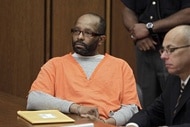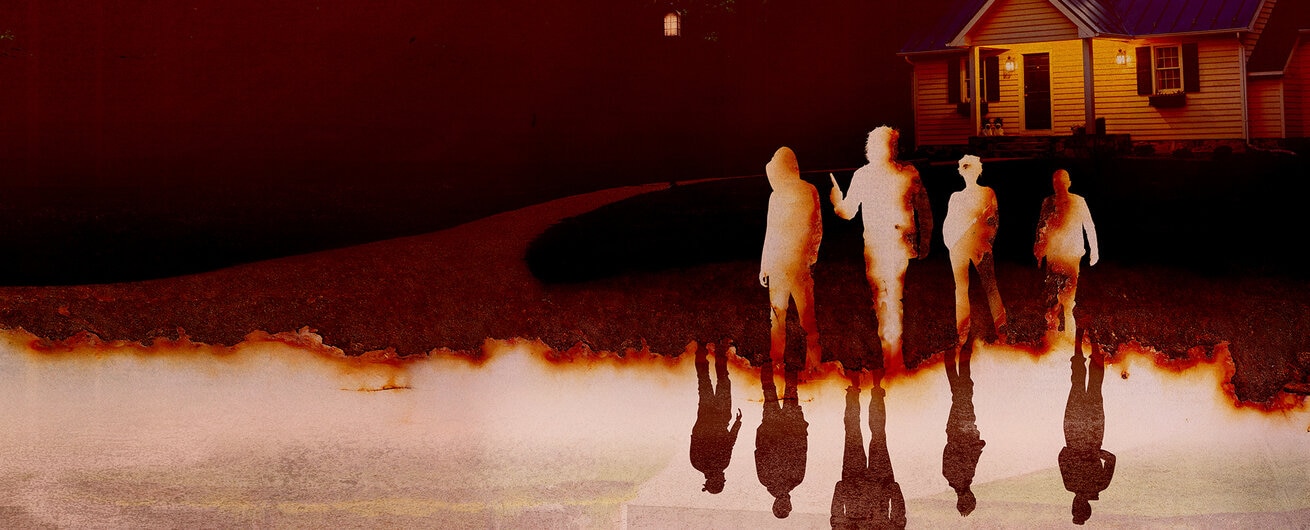Create a free profile to get unlimited access to exclusive videos, breaking news, sweepstakes, and more!
The Hamilton and Burr Family Rivalry Ended in Bloodshed
Honor was at stake in a long-simmering feud that ignited one of the most famous duels in American history.

The value of personal honor can’t be overstated.
Fatal Family Feuds, premiering Dec. 2 at 9/8c on Oxygen, covers shocking cases showing just how far individuals will go to protect their reputation.
A bloody slice of 19th century U.S. history involving two longtime political antagonists who settled their dispute in a deadly duel offers more evidence.
The Hamilton and Burr Family Rivalry Ended in Bloodshed
Thanks to the hit Broadway musical Hamilton, NBCNews.com has reported, it’s widely known that Vice President Aaron Burr shot former Treasury Secretary Alexander Hamilton on the Weehawken dueling grounds in New Jersey in July 1804 after a bitter rivalry.
The roots of the Hamilton-Burr feud can be traced to deep political and personal animosities that escalated in the early 1800s.
RELATED: The Hatfields and McCoys: What Caused the Bloody Family Feud
Hamilton, an architect of the United States Constitution, came to the American colonies in 1773 as a poor immigrant. Burr was born into a well-off New Jersey family in 1756. Like their upbringings, their political affiliations were at opposite ends of the spectrum.
Hamilton, a Federalist, favored a strong central government and a national bank. Ron Chernow, whose biography Alexander Hamilton inspired the Broadway musical, told Time.com that Hamilton “envisioned a country built on banks, corporations, stock exchanges and factories.”
Burr, a Democratic-Republican, championed states’ rights and a more decentralized system, per History.
In 1791, Burr defeated Hamilton’s father-in-law, Philip Schuyler, in a race for the U.S. Senate. That added fuel to the fire of conflict.
The feud between Hamilton and Burr peaked during the 1800 presidential election when Burr and Thomas Jefferson ran for the highest office.
Intricacies of the electoral system then led to a tie between Burr and Jefferson in the Electoral College, forcing the decision into the House of Representatives.
Despite political differences with Jefferson, Hamilton considered him a lesser evil than Burr. Hamilton argued that Burr was “without scruple” and would plunder the country, according to Smithsonian.com.
In Lin-Manuel Miranda’s award-winning biomusical, Hamilton puts it succinctly in the song “The Election of 1800.”
"If you were to ask me who I’d promote — Jefferson has my vote,” he says. “I have never agreed with Jefferson once… But when all is said and all is done, Jefferson has beliefs. Burr has none.”
The conflict got very personal, very quickly. Hamilton's scathing attack on Burr’s character — or, lack thereof — sparked the pistol-packed conclusion.
The Deadly Duel Between Hamilton and Burr
The fateful face-off between Hamilton and Burr took place on the morning of July 11, 1804, in Weehawken, New Jersey.
The duel was seen as an attempt to settle their differences and salvage personal honor in an era when dueling was still considered a legitimate means of resolving disputes among gentlemen.
Duels were common at the time, and both men had experience with them, according to ConstitutionCenter.org.
Burr and Hamilton met on the same Weehawken spot where Hamilton’s son died in an 1801 duel. Hamilton fired and missed. Burr hit the mark. Hamilton died from his wound 36 hours later.
RELATED: See the Trailer for Fatal Family Feuds, Oxygen's New True Crime Series
The Aftermath of the Duel Between Hamilton and Burr
The consequences of the duel were profound and far-reaching. The death of Hamilton, a brilliant statesman and Federalist luminary, left a void in the political landscape.
Burr returned to New York City expecting that he’d be hailed for defending his honor. Instead, he faced public outcry for killing Hamilton, according to History.
The duel had long-lasting repercussions for Burr as well. It effectively ended his political career and tarnished his reputation. Burr headed to the western frontier to seek new opportunities.
His professional and personal life remained “in tatters” until his death in 1836, according to History.
The Hamilton-Burr duel left an indelible mark on American history, highlighting the fragility of the young nation’s political fabric. The tragic gunfight underscored the dangers of personal animosities escalating to deadly dimensions.
Discover more about deadly personal disputes when Fatal Family Feuds premieres Saturday, Dec. 2 at 9/8c on Oxygen.
































